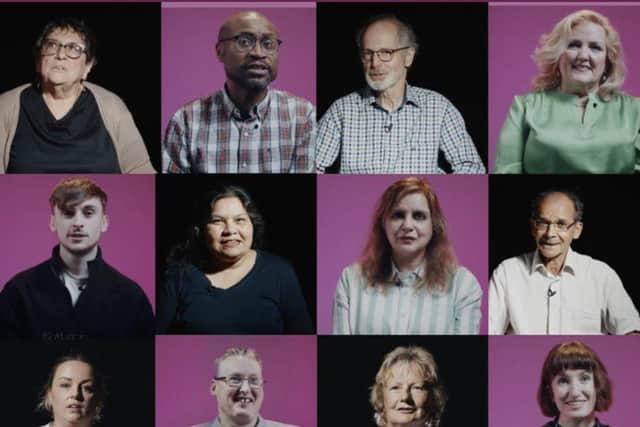Public back government intervention to ensure that everyone can eat healthy food
and live on Freeview channel 276
A new poll from the Food, Farming and Countryside Commission (FFCC) unearths the real food crisis in Britain.
- Four in five of the public (80%) believe healthy food is something that everyone should be able to have, yet only 8% think it is affordable to most people.
- In this election year, 68% of the British public say it is the Government’s job to make sure healthy food is affordable amidst increasing financial pressures and a worsening food environment.
Today, the Food, Farming and Countryside Commission (FFCC) launch the next phase of The Food Conversation to find urgent solutions to Britain’s growing food crisis. A series of in-depth citizen workshops will take place across the UK, including in marginal seats, bringing together a representative group of citizens to ask what people want from food and how they want to see things change.


Advertisement
Hide AdAdvertisement
Hide AdTo kick off, the FFCC commissioned new polling in partnership with non-profit research organisation More in Common, which reveals the stark reality of Britain’s food crisis: healthy food is now seen as out of reach for the majority. Four in five (80%) believe healthy food is something everyone should be able to have, yet only 8% think it is affordable to most people.
Almost half (49%) stated that financial pressures have made them cut back on the quality of food they eat. The research thus reflects a worsening food environment in the United Kingdom, where an estimated 11.3m people nationwide experience food insecurity. This is most acute in low-income areas, with an estimated 1.2 million people living in ‘food deserts’ where affordable, fresh food is severely limited.
Sue Pritchard, CEO of the Food, Farming and Countryside Commission said, “Of all the elements of our everyday economy, one of the things we simply cannot manage without is healthy food. How did this basic necessity become a luxury that few can afford? Food is at the centre of some of the biggest challenges this country faces and for many people, eating enough healthy food is becoming impossible.
A smart and strategic government will prioritise action across the whole food chain, from farm to fork. And what we’re hearing from citizens is that this would be a real vote winner.
Advertisement
Hide AdAdvertisement
Hide AdFor starters, people tell us they are concerned about the inequalities of a system that means poor children will live shorter lives than rich ones. They are sympathetic to the challenges facing family farmers who are dealing with the impacts of climate change on their businesses. And they are worried about an NHS buckling under the pressure of diet-related ill health.
‘While difficult – this is all fixable. And as we talk to people all around the UK, it’s clear that citizens see the problem and want the Government to take control of a situation that has become untenable.”
When asked about basic rights that are essential for a fair society, 80% of the public ranked access to ‘healthy food’ as vital – second only to access to healthcare – and well above ‘home ownership’ (52%), an issue traditionally prioritised by Government.
The poll took place alongside the first citizen workshop for The Food Conversation, which brought a representative sample of citizens from across the UK together to discuss how we grow, make and eat food.
Advertisement
Hide AdAdvertisement
Hide AdKevin Robson from Sunderland said, 'what we are currently seeing is that profits are prioritised over people. We need to flip this'.
In addition to workshops which have already happened in Birmingham, Cambridgeshire and London, the Food Conversation will also travel to Northumberland, West Yorkshire, East Kent, Cornwall & South London, Wales, Scotland, and Northern Ireland.